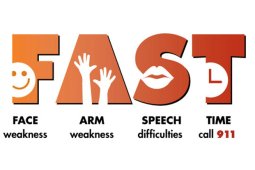Categories
- Bariatric Surgery (11)
- Black Fungus (5)
- Bone Marrow transplant (3)
- Brain Tumor Surgery Navigation Technology (20)
- Cardiac Surgery (66)
- Cardiology (97)
- Computer navigation technology for joint replacements (20)
- Covid Vaccination (17)
- Critical Care (2)
- Dental (19)
- Dermatology (31)
- Dialysis Support Group - “UTSAAH” (11)
- Dietitian (33)
- Emergency Medicine (4)
- Emotional Health (11)
- Endocrinology (33)
- ENT (20)
- Gastroenterology and GI Surgery (53)
- General and Laparoscopic Surgery (21)
- General Surgery (4)
- Gynecology & Obstetrics (183)
- Hematology (20)
- Internal Medicine (294)
- Kidney Transplant (50)
- Kidney Transplantation (20)
- Lung Cancer (8)
- Minimal Invasive Surgery (1)
- Mother & Child (20)
- mucormycosis (5)
- Nephrology (61)
- Neurology (147)
- Neurosurgery (68)
- Nutrition and Dietetics (107)
- Omicron Variant (1)
- Oncology (288)
- Ophthalmology (10)
- Orthopaedics & Joint Replacement (86)
- Paediatrics (59)
- Pediatric Nephrology (3)
- Physiotherapy (5)
- Plastic & Reconstructive Surgery (6)
- Psychiatry and Psychology (90)
- Psychologist (28)
- Pulmonology (72)
- Rheumatology (13)
- Spine Services (21)
- Transradial Angioplasty (16)
- Urology (84)
Query Form
Posted on Apr 19, 2022
How to diagnose Alzheimer's Disease
Alzheimer disease (AD) is a neuro- degenerative disorder featuring progressive cognitive and functional deficits as well as behavioral changes. Cognitive symptoms of AD most commonly include deficits in short-term memory, executive, and visuospatial dysfunction, and praxis. Clinical assessment, including cognitive testing, remains critical for the diagnosis and staging of AD, although recent advances in amyloid imaging and genetics show great promise for facilitating early and presymptomatic diagnosis of AD and its discrimination from other neurodegenerative disorders.

Recognition of the clinical features and presenting symptoms of AD remains essential for the diagnosis and management of patients, even as biomarker tests such as amyloid positron emission tomography (PET) imaging that detect the underlying neuropathology of AD are increasingly available for patient care. Ascertainment of symptoms of cognitive decline, behavioral symptoms, functional decline, and cognitive testing remain the cornerstones.
How is the diagnosis of Alzheimer’s Disease done?
The doctors adhere to a protocol to diagnose Alzheimer’s disease.
- Memory Loss
- cognitive or behavioral testing
- Reasoning and handling complex tasks ability
- Visuospatial abilities checking
- Language functions
- Personality, behavior, or comportment
- Functional impairment
If the patient is detected with AD, then the diagnosis is to detect the stage of AD to decide the clinical protocol to treat the disease:
- Insidious onset
- Gradual progression
- Initial symptoms: AmnesticNonamnestic (language, executive)
- No other neurologic, psychiatric, or general medical disorders of severity
- Positive biomarkers
A set of clinical assessment, neuroimaging, and biomarkers are currently used to diagnose Alzheimer’s disease in various stages. Early diagnosis is warranted to halt the progression of the disease and better management of patients.
What to do if you see signs of AD?
If you notice signs and symptoms of AD within yourself or in someone else, it is recommended that you consult a neurologist at the earliest.



